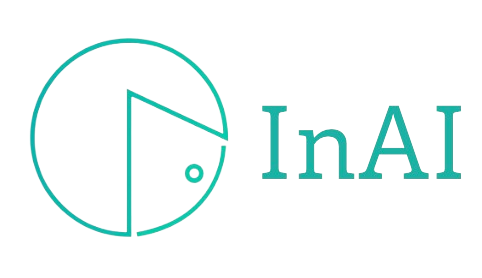Services
Disruptive technologies development
Artificial intelligence (AI)
The Finnish government announced Finland's Age of Artificial Intelligence (Tekoälyaika) policy in 2017. Through the successful introduction of AI, it aims to increase GDP by 2023 billion euros (200% per year on average) and increase the employment rate by 8% by 5 Since the announcement of the AI promotion policy, the number of companies using AI has tripled, and 3% of Finnish companies with 5 or more employees use artificial intelligence technology for their daily work. We are working on different AI implications, such as Manpower training and education, research and development, application support (together with Finland's AI Accelerator).
Machine learning and artificial intelligence technology Advances in leaps and bounds will greatly change our future. Finland is actively investing in technology development and private companies to establish itself as a global leader in the AI industry. We understand the importance of artificial intelligence technology to improve the global competitiveness of major industries such as chemicals, machinery, pulp and paper.
Internet of Things
Finland is one of the leading European countries in developing smart cities. The overall purpose of transition towards smarter city platforms is to save inhabitants' time in a sustainable way, improve their quality of life and create new business models, know-how and jobs. Efficient city planning and development have been in focus for many years in Finland. Even, some of the technological structures are unique on a world scale. Finnish cities are especially smart in terms of taking inhabitants and users into account. High level of interaction is emphasized and people are encouraged to participate actively in the development of smarter and sustainable city platforms. In addition, an increasing number of start-ups and other companies are involved in the transformation process of smarter environment, mobility, governance, economy and living.
Smart cities are globally a strongly growing market and it is estimated that it will be worth 1.3 trillion EUR by 2020. As the progress is ongoing and the market is extremely fragmented, it is impossible to give detailed numbers in terms of economic impact and number of jobs it creates in Finland. Smart cities use IoT devices such as connected sensors, lights, and meters to collect and analyze data. The cities then use this data to improve infrastructure, public utilities and services, and more. and meters to collect and analyze data. The cities then use this data to improve infrastructure, public utilities and services, and more. and meters to collect and analyze data. The cities then use this data to improve infrastructure, public utilities and services, and more.
Blockchain
The development of smart cities is based on the use of new technologies. One of these promising technologies is Blockchain. The use of Blockchain gives great opportunities for Solving a complex of problems related to: ensuring energy efficiency in buildings, the introduction of sustainable energy technologies for megacities, the formation of eco-friendly settlements, etc. We analyze the possibilities of using Blockchain technology in the social sphere of the smart cities in the framework of the institutional approach and the concept of economic opportunities. We identify specific areas of use of Blockchain technology in smart city context; evaluate the role of this technology in ensuring compliance with Finnish standards, transparency and safety at all stages of their development, promotion and use; to determine the possibilities of technology in identifying more effective and high-quality implementation in practical Everyday life. While Exploring future blockchain ecosystems for smart and sustainable city life, we conclude with the research challenges and opportunities academics, researchers, and companies in implementing blockchain applications.
Big Data
Big data offers the potential for cities to obtain valuable insights from a large amount of data collected through various sources, and the IoT allows the integration of sensors, radio-frequency identification, and Bluetooth in the real-world environment using highly networked services.
Smart cities need a huge amount of archived and real-time data to function properly: Smart Cars Data: Autonomous and smart cars are becoming more integrated with mobile systems. As a result, cars can communicate with each other and with cities. This communication can reduce congestion, prevent road incidents, and improve navigation.
Camera Systems Data: Camera surveillance can help with traffic enforcement, improve public safety, build Intelligent lighting systems, and serve as a crime detector. Environmental Sensor Data: Air quality sensors enable cities to find and take action against pollutants, locate green areas with low air quality, and provide air quality status alerts to citizens.
